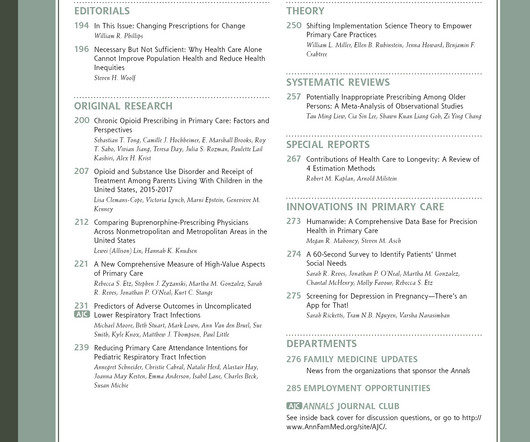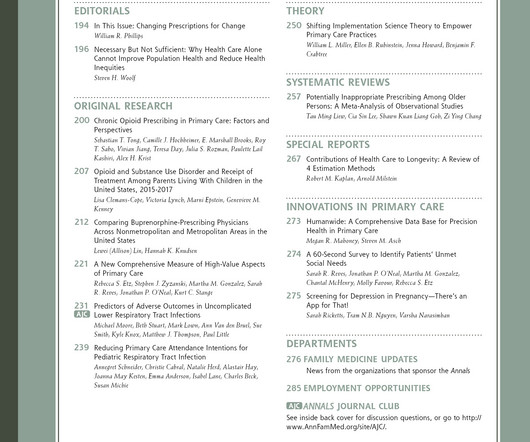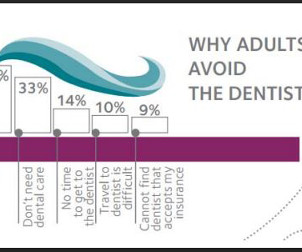Predicting Likelihood of Missed Appointments in Primary Care [Health care informatics]
Annals of Family Medicine
NOVEMBER 20, 2024
Despite efforts to improve patient-clinician relationships, access to care, and healthcare workflows, annual rates of missed appointments (MA) in the U.S Objective To evaluate the association between patient, health system, geosocial, and environmental factors on the likelihood of MA in Family Medicine clinics. for CA, 0.85





















Let's personalize your content